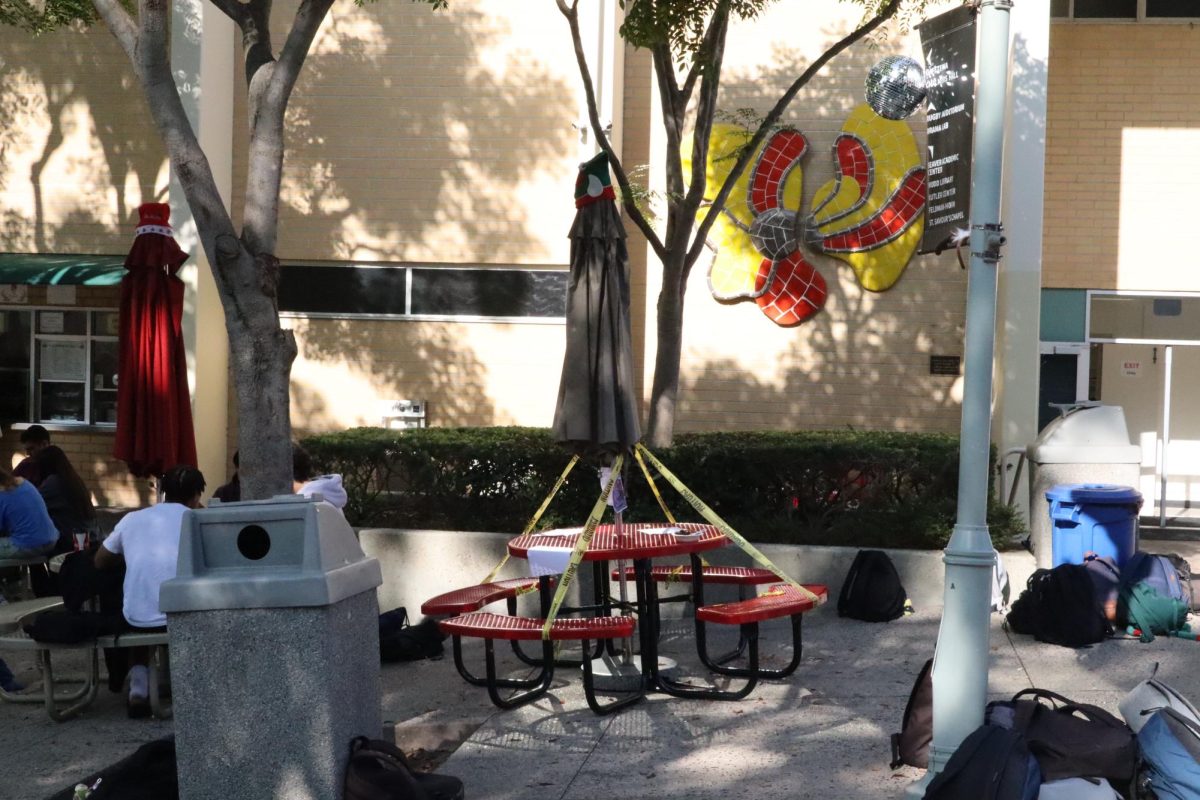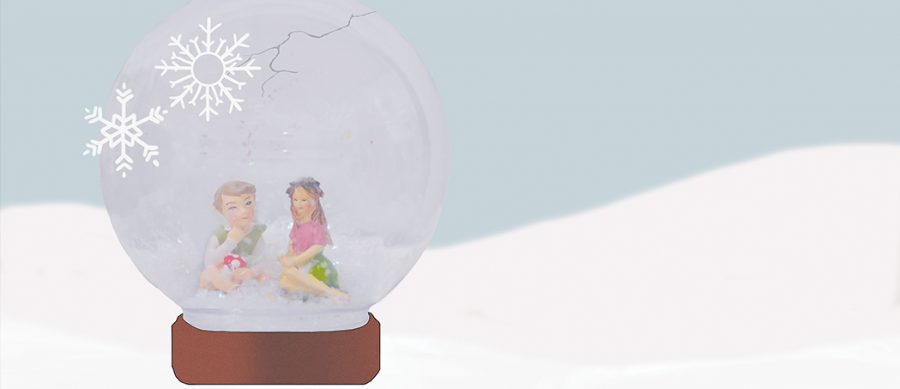As Noah Aire ’20 scrolled through Amazon to find holiday gifts for his father, he quickly became overwhelmed by the flood of advertisements promoting gifts for significant others. After a few more minutes of searching, the advertising became too much for him, and he closed his computer. “Cuffing season,” the time during the winter when people begin to enter into more serious relationships, had officially begun.
“I think that the holiday season definitely increases pressure to date because it is just everywhere you look,” Aire said. “If you want to buy gifts on Amazon for example, there are ‘gifts for him’ and ‘gifts for her’ which can make you feel like you need a significant other to be normal.”
Social media platforms, such as Snapchat and Instagram, also promote cuffing season, Riley Ruiz ’20 said.
“I think there is some added pressure during the holiday season to be in a relationship because that’s the time of year when relationships are being posted everywhere,” Ruiz said.
Diego Ahmad ’20 said he feels this influence of holiday romance in music the most.
“I think as holiday songs start playing, a lot of people feel the association between the holiday season and romance and want to be part of that,” Ahmad said.
Although there is pressure from the media, Michael Lehrhoff ’20 said he believes the expectation to spend time with family is more important.
Even though the media promotes cuffing season, it does not actually affect teenage behavior and mentality, Jess Grody ’19 said.
“Maybe there’s a stronger sentiment among adults, but I think as teenagers we don’t feel like we need to be in relationships with people just because it’s the holidays,” Grody said.
According to a survey of 332 respondents, 17.17 percent of students said that academics is the biggest factor affecting dating life on campus.
Maitlyn Fletcher ’21 has been in a relationship for over a year.
“I think there are not many relationships because not only do people believe that being in a relationship will affect one’s school performance, but it is also difficult to socialize and meet new people when you’re constantly working,” Fletcher said.
With the large amount of extracurriculars and school work students take on, it would be difficult to add a serious relationship to one’s life, Patrick Hyde ’20 said.
“As most people are focused on school and don’t have time for serious commitments, the people who are making these commitments might have to be sacrificing some of their academic life,” Hyde said.
However, whether or not students engage in romantic relationships is actually based on many more factors than just academic work, psychologist Sophie Wasson said.
Social status in particular affects dating at Harvard-Westlake, Ava Benavente ’20 said. In the same survey, 66.27 percent of students said social dynamics play the biggest role in affecting dating on campus.
“It seems like each level of social status has a different feeling about dating,” Benavente said. “In some groups, it is easier to date than others. However, Homecoming definitely creates the most couples across the board.”
Over the course of the year, the Upper School holds two dances. The Homecoming Dance, for all upper school students, takes place in the fall, while Prom, in the spring, is for seniors.
While many students attend the dance with a group of friends, many also go with dates.
“I think that high school students feel pressured to date because not having a date to school dances is often stigmatized,” Lehrhoff said. “Once students find dates, unfamiliar relationships are formed where students then feel compelled to start officially going out with their dates.”
Although their peers may worry about the negative effects of entering a long term relationship, many students manage them without difficulty, Fletcher said.
“I personally don’t find it too difficult to be in a relationship, as my boyfriend and I are very understanding of the fact that I’m overloaded with work,” Fletcher said. “I also think it has benefited my performance in school as I have an outside support system whenever I’m stressed.”
The situation is even easier if the significant other goes to a different school, Ruiz said.
“We both understand that we’re really busy during the day, so we text a little bit throughout the day and then actually talk after school once we’re both home,” Ruiz said.
Although some students do date and social media does promote these relationships, in the end there is no true formula for any of it, Benavente said.
“I think [cuffing season] is a nice idea that when all your family comes into town for the holidays and they ask, ‘Oh, so any boys?’ because that’s what happens in my family, to be able to say yes,” Benavente said. “However, I think in high school it happens when it happens.”
Although students may feel prevented from dating for various reasons, it is an important step in a teenager’s development, Wasson said.
“Being social and experimenting with dating and romantic life is very important developmentally,” Wasson said. “Just as doing homework is important. Like most things in life, it’s about trying to find a healthy balance.”





























